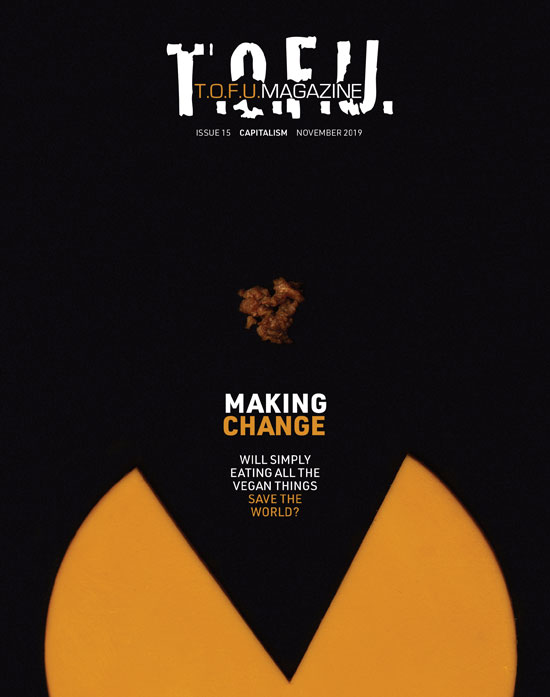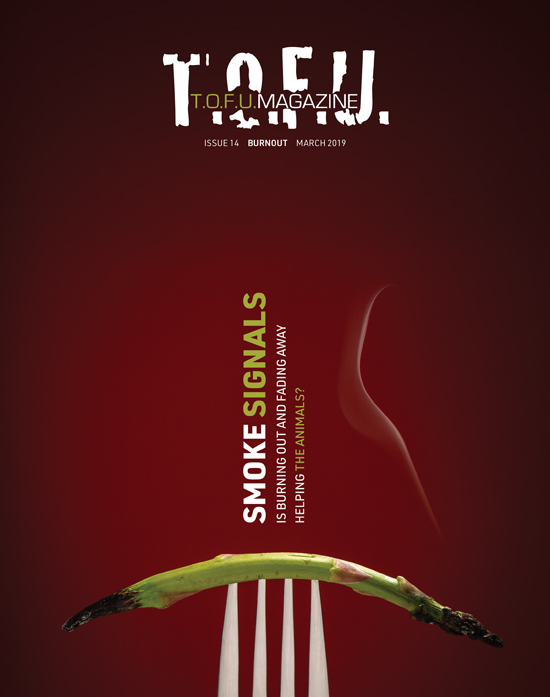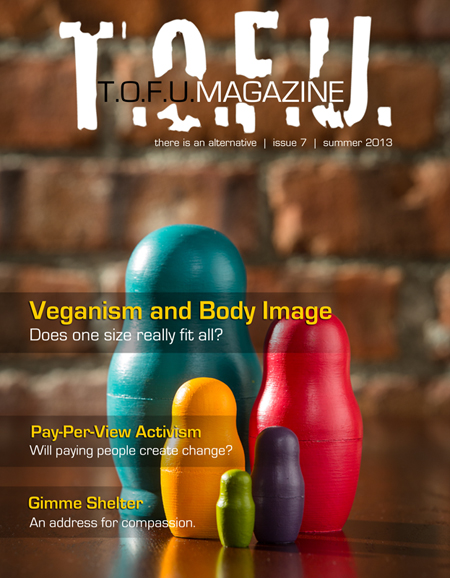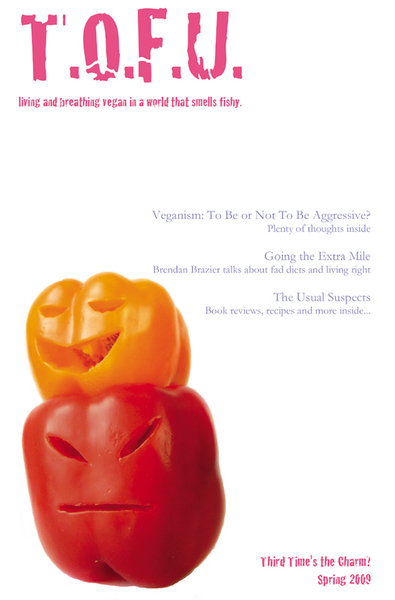#OurNewNormal | Stacy Owens of Half Moon Bay, California
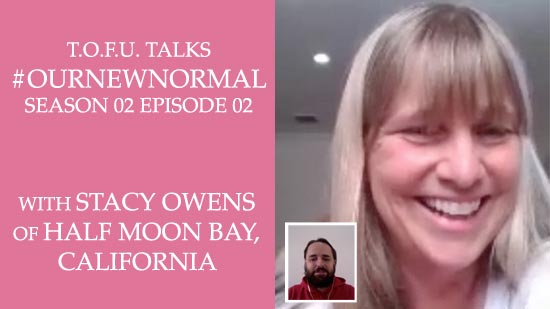
In the second episode of the new season of #OurNewNormal, a T.O.F.U. Talks limited series, Stacy Owens shares what life has been like in Half Moon Bay (part of the San Francisco Bay area), California during the COVID-19 pandemic. Whether she’s running her small business or helping one of her kids with school, Stacy explains the complications of finding balance in her new normal.
Recording Date: April 20, 2020
Podcast
Although the interview was originally done as a video chat, you can now listen to it in an audio-only format available on most podcast platforms, as well as below.
Podcast: Play in new window | Download (Duration: 28:39 — 39.8MB)
Subscribe: Apple Podcasts | Spotify | Android | iHeartRadio | TuneIn | RSS
Transcript
Ryan: Thank you everybody for joining us today. Or tonight. Whatever it is where you’re watching this, and welcome to another of the T.O.F.U. Talk sessions around basically our new normal and dealing with this pandemic in everybody’s little pocket of the world. And so, I wanna thank you for joining me as well. This is the first time we’ve talked. I’ve known you off, or online, for a little bit, but, for everybody else, could you maybe introduce yourself?
Stacy: My name is Stacey Owens, and I live in the San Francisco Bay area.
Ryan: My next question was going to be “where are you now?” and I guess that was it. I think you’re the first person so far I’ve talked to in the Bay area. Funny enough, my partner did a piece recently. She writes for one of the national papers here in Vietnam, and she did a piece about, there were two women that own, I think it’s “Pho Hanoi” or “Hanoi Pho” or something, like, these two restaurants in, where was it? Maybe it was the San Jose Bay Area.
Stacy: Okay, yeah. The South Bay?
Ryan: Yeah, and so I, she was wondering, like, because I was thinking “oh, I think people just call it the Bay area” and I had to look up, like “what exactly is the Bay area?” ‘cuz I wasn’t sure if, like, San Jose was in it.
Stacy: It’s seven counties, and San Francisco is sort of our worldwide city here. Oakland and San Jose are our other major cities. Around here it’s all “the Bay area”, but we call San Francisco “the City” and then Oakland and that area around there “the East Bay” and San Jose and the area around there are “the South Bay”, and where I am, I’m next to the ocean, just about twenty minutes south of San Francisco and this is called “the Peninsula”.
Ryan: Okay, but it was, I mean, obviously, there’s a lot of great stories coming out from this and people being creative and wanting to help and everything. And so this woman basically decided that, like, since she had to shut her restaurant down, she thought “okay, well I can…” instead of donating some money to the hospital and whatever she said I can just make meals and my employees will be able to, you know, to work and everything. I guess people heard about it, and the neighbours and stuff, so like her distributors and suppliers are donating and so I think she’s done like three thousand or four thousand meals so far, like, and a lot of the hospital workers had never had Vietnamese food. So, now they’re kind of, like, when things go back to normal, they’re like “well. we’re totally going to go and check out your restaurant and everything”. So, it was a really cool story, but that was, like, I remember having to look up “okay, is San Jose in the Bay area?” and, you know, so I got a better picture now.
Stacy: Yeah, yeah, exactly. A lot of our, sort of, mutual aid groups are doing a bunch too. Food Not Bombs is sort of organizing in their different chapters around The Bay, and doing a great job of getting food and supplies out to people as well. ‘Cause, like anywhere else, we have a huge problem of people without houses. And that’s probably been the scariest part of all this.
Ryan: I think when I hear about The Bay area, that would be another thing I hear about is housing prices and all that because, there’s a bit of the tech industry thing is going on there, right? If I’m not mistaken?
Stacy: Like crazy. Yeah, and it means that, I mean, you know, my little teeny house that I live in, if you Zillow it before this, who knows now, but it, you know, they were saying this is about two thousand square feet, you know, built in the nineteen seventies. Granted, we’re near the ocean, but last time I Zillowed it, it was worth over $1.2 million, according to Zillow. So, that just is obscene, and it tells you how completely out of range.
Ryan: Yeah.
Stacy: It’s gotten for anybody, and that’s, you know, about six times what my husband paid for it in the nineties. So, not only is it completely out of range, but it’s happened very fast. In, you know, relatively speaking, in twenty years.
Ryan: Yeah.
Stacy: It’s gone up extremely, so yeah.
Ryan: And, I mean, obviously with this sort of thing happening in the world, that kind of just makes it even more of a concern ’cause this concept of “well, stay home and shelter in place” is like “well, what do I do if I don’t have a home?”
Stacy: Yeah, or somewhere to shelter. And, you know, right now, I live near the ocean, so we’ve been having a lot of people from out of town who think that “shelter in place” means “drive to Half Moon Bay and go to the beach”. So, there’s been some, you know, increasingly over the month, there’s been a lot of efforts to curb that. But the latest one, which I have very mixed feelings about, is that the police are now pulling people over and looking at driver’s licenses to see if you live in this area.
Ryan: Oh, wow.
Stacy: You know, which, the part of me that’s terrified when I go to take my exercise and there’s, you know, fifty people on the beach trail is, you know, kind of relieved that we’re trying to get rid of that. But from a social justice point and for people who don’t have houses, you know, where are they gonna be? If every community keeps saying “oh, you can’t be here, and you can’t be here, and you can’t be here”. This is not a solution, and it is not sustainable, and beyond the fact that it’s quite scary that we’re now being told that people can be fined or even arrested for being in the wrong place.
Ryan: Yeah, and I think, I mean here in Vietnam, obviously, I technically shouldn’t even be critical of the government because…
Stacy: Yeah, careful.
Ryan: There are consequences. But it has been interesting to see, I mean, in the neighbourhood, I feel like a lot of people are not complying, but there hasn’t been, like, this mass uprising of protests and everything because it’s, you know, protesting isn’t really a big thing here because there’s repercussions that are pretty serious. But I feel like in some ways, and depending on if you believe the numbers in China are whatnot, like, that sort of one-state party thing led to maybe some of these regulations and everything being listened to a little better.
Stacy: Yeah.
Ryan: We’re just kind of like “okay, we’ll do that” whereas when it went over to the West, you know, people were, like, within a week, everyone’s like “this has to end now! You can’t tell me what to do! I have my freedoms!” Yeah, I mean it was the same thing in the West Coast of Canada and, like, Easter break came around and people are going to their cottage or cabin or whatever and it’s like “no, you’re supposed to stay home” but I’ve also read that, like here in Vietnam, and obviously in China too, SARS and H1N1 hit pretty hard here, so I think people also, you know, have that in their memory and their just like “alright, we’ve kind of done this before. Let’s do what we need to do and figure it out” and so, I don’t know, it’s a whole mix, but I was gonna ask you, like, how, you know, what sort of measures are in place, like, in the area that you’re in and are people listening to them? And we kind of touched on that already.
Stacy: Yeah, you know, the entire Bay Area was pretty early, and has been pretty good about trying to put measures in place. So they’ve been increasing as you go along, and as people aren’t following the rules, then they put more in. So, we’ve all been home for about a month. I think it might be exactly a month. The schools are closed until next year. So, school around here starts late August, so, as far as we know, kids are going back to school mid late August, but we don’t really know. You know, it just sort of week by week. They were allowed to go out only for exercise and essential tasks. I feel like that people are probably pushing it with the exercise thing as we discussed a minute ago, but, you know, I get it. I am critical, but also I get to live next to the beach, so exercise for me means I go to the beach. For somebody else, exercise means walking around a city block. That’s not so fun. Yeah, you know, and then, with the essential activities, if you go to the grocery store or hardware store or anywhere that’s allowed to be open, you have, you’re required to wear a mask and gloves. And we got emails this morning saying that they were going to start enforcing, that this is our grace period, and they’re gonna start enforcing that with fines and possible arrest on the 22nd. Tuesday or Wednesday.
Ryan: Yeah.
Stacy: That’s, you know, and I feel like that’s pretty typical, but I know that there is other states in the country, and other areas out of the country where they stopped, where they didn’t do the social distancing until much later, and I’m not sure every state even is right now. Question mark. Question mark. I think it might have been either a red state or a blue state, right?
Ryan: Yeah, I’ve definitely, I mean I haven’t been keeping, like, total track of all the states, but the overall news I’ve been getting from the States is that it’s kind of a mix, you know, some places are already now talking about “alright, we’re gonna open up and start-up the economy again” and other places just say, you know, I mean California in general I think has been pretty tight and obviously, like, New York state is going through kind of the worst of it, from what I known, so they’re not in any way being like “alright, next week, we’re gonna be opened” But yeah, it definitely seems like it’s a bit of a mix. So, in terms of, I know you have one kid, right?
Stacy: I’ve got one. Well, I’ve got three kids, but I’ve got one kid who is of school age. Lives here, with me, and I’ve got an older one who, as I mentioned, who’s in Seattle. He’s thirty. And I have a college age son, who is home, sheltering in place with us. So yeah, you know, so we were sort of running the gamut. My thirty-year old is the director of volunteers at a homeless youth shelter in Seattle. So, some stuff that’s coming out of there, they’re having a hard time making some decisions and figuring out how they’re going to serve everybody.
Ryan: Yeah.
Stacy: And then, my middle son, my twenty three-year old. We really don’t know day-to-day if he’s going to be going to college again in the fall. You know it’s senior year, so this is going to, in some way, affect his studies, you know. And then, my little one, they’re calling it “remote learning”. I understand that different schools are doing it different ways. His class, in particular, and I think it may be our district, there are occasional online Zoom meetings. But, it’s really just sort of a check-in, and the teaching is all happening. There’s work being sent home. Well, not sent home. There’s a Google classroom, and so you log in there and all the work is there. But the actual teaching has been a combination of me and my husband and my twenty three-year old, who also, thank god, is a math and science teacher for his profession. I’ve been able to, you know, put some of this on him, but that has been really difficult. I’m at the point where I feel like I need to say like either “do some remote teaching, or just, you know, let us a little off the hook with the volume of the assignments”. It’s stressful to be trying to get all these pieces of paper done every day, and I don’t think it’s serving anybody. I don’t think he’s really “learning” in the way that he would be, if there were some online classes, which it’s a privilege and I know everybody can’t get that, but since we do have it, can we utilize it in a way that means that I can actually do my job?
Ryan: Yeah, the in-between definitely would make things complicated. I know here, like, in the international schools, obviously, they were like “alright, online learning. Let’s do it” because there’s way more funding and, like, I think part of the infrastructure was already in place. So, I’ve talked to, like, ’cause I’ve been writing for the paper as well, and I’ve talked to some of the parents, like, foreigners with their kids and the snapshot of, you know, how people were doing here with foreigners is “no big deal”, you know, half of them were teachers themselves, so they’re just teaching their kids in the day and then doing, you know, online classes to make a little bit of money. I mean, obviously, people have been affected in terms of their income because schools here have been closed since, like, January. So, there are some teachers that haven’t really had you know, ’cause depending on the school you went with they either we’re like “alright, we’re closed” or some moved to online learning or whatever. So, it’s been like a mixed bag. The people I talked to were all doing pretty well. But that’s, like, very much a different world compared to say, like, what I understand of the public school system here and obviously people in small towns and, like, remote villages and everything. I’ve heard some stories of, like, very determined students, like, sitting on a hilltop with, like, a cellphone signal to be able to get online classes. And then working in the firm for a day, so they can go and buy more data on their cellphone. So it’s, again you know it’s people just trying to do the best they can with what they have, but yeah, you would think…
Stacy: It reminds us of our privilege though.
Ryan: Yeah, but I mean. You know, in that sense too, it’s like “okay, if the school system within say a Western countries is gonna do it, like, do it” and I mean, you know, but obviously and like everything’s kinda touch and go. It’s not like there’s a manual for most of this, right? I know, like, SARS and H1N1 did kind of hit the West, but, like, I mean, I know in Canada, Toronto kinda had to deal with SARS a bit, but it wasn’t like this nationwide disturbed…
Stacy: I remember talking about it, right, but it wasn’t like anybody thought they were. gonna get it. Just, yeah, this is really unprecedented.
Ryan: Yeah, I mean this concept of having like everything shut down. You know, is not, I mean I feel like I’m a little old, but I definitely haven’t lived long enough to have anything to compare this to, right?
Stacy: Not unless you’ve lived since 1918 or something.
Ryan: Yeah, right? Like, you gotta go back aways. So, I mean, like, obviously, so it’s impacting your family in different ways. How, like, altogether, how are you coping with it? Do you have any secrets to what’s keeping you all going?
Stacy: I think overall, we’re doing pretty well, and, unfortunately, the secret is that, you know, I have all kinds of luxuries that most people don’t have. I have a house that I live in. I’m not worried that I’m gonna get kicked out by a landlord or any of this type of thing. I own my own business. So, you know, whether business is up or down a little bit, we all have certainly instituted that, for me and all of the employees that our hours are just catch as catch can, right? We’re doing what we can. And, you know, we just have a relatively comfortable life, and so there’s certainly some awareness and guilt that is involved with it, but I don’t have, you know, tons of great tips for people who are in an unstable situation. I mean, you know, how we’re dealing with it is family games every night. One thing that we are doing with my son’s school that I feel blessed about is that his teacher instituted something called “Genius Hour”, which is just being able to research and spend an hour each day doing whatever it is that you want to do and learning, whatever it is that you wanna learn. So we have been going through the history of liberation movements and, different, looking at different protests, looking at different protesters, certain figures throughout history, and seeing what was effective and what wasn’t. Really trying to make this a teachable activists moment for him. He’s always been interested in activism. So, you know, I feel like that sort of passing on knowledge and having fun as a family and the ability to think about, you know, what do things look like when we get out of here, and what kind of steps can we take to make sure that things are more fair going forward is the best that we can do and is helping us all feel like there’s some purpose to being locked up in our house, right?
Ryan: I have a friend who I think, I mean, from what I know about her through social media with her child, like, they’re fairly young. I think maybe she’d be doing this anyway. I’m not even sure if the kid’s ready for school yet, but she’s been doing, like, kind of going through the alphabet and, like, each day’s a different letter and so then she’s going over, like, different musicians with that, you know, that start with that letter and different books that start with that and certain topics around, like, you know, activism and sort of historical figures that all start with “g” or “f” or whatever. And so she’s been posting kind of, like, the collection on the table and being like “today, we learned about”, like, you know, I’m totally blanking on it, but just, like “in terms of these historical people and we listened to this kind of music and these bands” and I was like “well, that’s cool”, so it’s, like, I feel, like, everyone I’ve talked to has talked about, like, the importance of, like, maintaining a routine, and you know just kind of knowing “okay, today we’re gonna maybe, like, have classes” and that sort of thing. I mean, while also being aware that if you have a bad day, like, that’s fine because this is a messed-up situation.
Stacy: Yes.
Ryan: That you need to be able to, you know, process. So, in terms of your kid, like, how have you explained it to them? Have you kind of totally put it all out there, or is it like sort of layered?
Stacy: We try to always be completely upfront and honest in a very age appropriate way with everything. I mean he’s been a vegan since birth. We talked to him about, you know, racial justice issues, you know, Lgbtqia, so everything. So we make sure that he really understands the real information, but in a way that’s not scary and anxiety producing. So, what he knows is that, kind of as much as I know, right? Which is that there’s this virus and, you know, you’re more able to catch it than the regular flu and the the hospitals could get overwhelmed. So, to be a good community member, we have to do our part and shelter in place, and that we don’t really know when this is gonna end, but, you know, we have some guesses. We think that it might be a few months, but we’ll just have to do our best and we still can, you know, take the dogs for a walk and cook with Mommy and, you know, all the normal stuff that we do. We’re all just waiting to hear what’s going to happen. Because I am very political and I, you know, run a political firm and, you know, my whole family’s very political, I’ve been, you know, mostly talking him off a ledge about Trump and what is this, you know, if like he’s completely determined that this means that trump’s not gonna win. So the most anxiety has been around… right? And I’m just, you know, so the most anxiety has really been around “what’s going to happen in the future because of this?”
Ryan: Yeah
Stacy: Which we’re all experiencing and we just talk about it as honestly as we can, and talk about “well, if he does, then we’re going to organize” and it’s just all we can do.
Ryan: I mean, on that note, actually that leads into pretty well to the last question or I guess sort of group of questions. I mean are there, like, you kind of touched on, you know, certain outcomes, but are there any sort of lessons that you think your family is gonna take from this experience, like, anything that’s gonna kinda change the way you’ve been living or, like, things you focus on or anything like that?
Stacy: Yeah, I think that, that as much as I’ve always talk to everybody about being an activist and how it’s important to support, you know, different movements and we’ve done so all along, I think that this is showing us that paying more attention is going to be important going forward. And maybe mixing in more direct work, not getting so sidetracked by, you know, “I’m tired from work”, “I’m tired from school”, you know, just trying to really better use the privileges that we have, you know, financial, and with time and class and everything else to be able to systematically chip away at this better. You know, and I’m in a unique position again with working in politics and my hope is that that peer group that I work with on the political side that this really motivates that peer group because, you know, it’s really the people in power who need to be looking at universal basic income, and, you know, how is it that they’re saying that they can find places for people without a house to be now, but they couldn’t have all long? How is it that we can feed people now, but we couldn’t all along, right? Healthcare, how is it that that they’re saying “oh, yeah, you know, anybody can go in and get a test”. Well, that was never true before. So, you know, I’m starting to see, certainly here in the Bay area, which is, you know, a lot of the people I work with are Bay area or certainly California campaigns. I also have some North Carolina campaigns, so it’s two different worlds, but certainly the Bay area I’m seeing that the people who have the power are more on that progressive side and more able to start to look at how we’re going to make these things systematically better for people going forward. But this has definitely, I think, re-energized me and my children to really look at keeping on the course with trying to make things better and escalating it.
Ryan: I think that’s something that I noticed too is that all these things that, I mean, especially in the States, you know, and in Canada as well all these things that everyone was like “look, we need to do this” and everyone was like “no, we can’t. Everything will fall apart and whatever, you know. We’ll just be a communist state or whatever”.
Stacy: “It’ll be anarchy” like that’s a bad thing!
Ryan: Yeah! The thread of the country will tatter and bla bla bla. And then this comes around and starts, you know, finally like the majority’s facing it and it’s like “alright!” Okay, you know, in Canada, they were like “student loan payments are being forgiven or, like, pushed ahead” and now there’s what is sort of a version of basic income. I mean they were doing, I think they started doing a testing population about it, but it’s not exactly, like, on a bill yet to be passed. Now, the government’s like “alright, we’re going to give”, you know, I mean people are falling through the cracks like freelancers and everything, but it’s sort of talked about, right? I mean obviously the healthcare thing in the States is one of the big issues. As, you know, as much as Canada, like, there are issues with our healthcare system at least, if people wanna go get a test or they get sick, they’re not, like, $10,000 in debt just because they got an incredibly infectious disease.
Stacy: Right, right.
Ryan: So, again, that’s something that I’ve been kind of focusing on too is that I hope, you know, out of this people be like “you know what? maybe those weird lefties had a good idea there that this safety net isn’t necessarily gonna lead to like the collapse of our country”.
Stacy: It does does seem like it’s just a sort of very basic idea, and for me it’s frustrating. I come from a family of, a long line, my great grandfather was a union organizer back in the 1910s and 20s when it was dangerous, right? And I was born in Berkeley in 1970. It always felt to me like that it seemed like grown-ups were trying to handle this, and so how do we find ourselves here now? And we are the grown-ups, so we’ve really got to, we’ve got to do something here.
Ryan: So, I mean, I think we kind of touched on it, but, like, what do you hope the world learns from this tragedy?
Stacy: I hope the world learns to act more communally, to think more about, you know, your neighbours, and that maybe you don’t need three cars, if your neighbour is starving to death. I mean just, you know, just I hope that there are both people’s individual attitudes and also some of our systems are changed in a way that more people have more and fewer people have too much.
Ryan: Yeah. Yeah, I can agree with that. It definitely sounds like a good goal. I wanna thank you for sort of sharing this little window into your part of the world because I definitely wasn’t reading in the media about the Bay area except for the story my partner did. So, thank you so much and I’m sure we’ll be talking again like we have been off and on in various ways, and, yeah, I hope you have a, wait, no. It’s night there, right? Sort of?
Stacy: Not quite. It’s 4:30.
Ryan: Okay. Well I hope the rest of your evening goes well, and I will talk to you again in some form.
Stacy: Bye.

